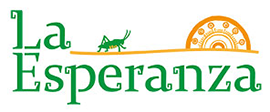
Indigenous People’s Day is a holiday that commemorates the many contributions Native Americans have made to the United States – but also their resilience in the face of discrimination and violence throughout the country’s history. It also aims to broaden understanding of the diversity of the Native American peoples and their history. It began to gain widespread recognition in 1992, and in 2021, President Joe Biden issued the first White House proclamation marking Indigenous Peoples’ Day and honoring our Native peoples.
Many cities and states are observing the day.
The day is not yet a federal holiday like Columbus Day. However, this month, lawmakers from the House and Senate reintroduced a bill that would establish Indigenous Peoples’ Day as a federal holiday on the second Monday of October, replacing Columbus Day. While the day does not aim to erase a celebration of Italian-American history, it does recognize unpleasant parts of our history – such as the violent colonization that followed Columbus’ landing. It also represents a call to commit to a more just and inclusive society, similar to Juneteenth.

Facts you should know:
- The holiday’s first proposal came about at the International Conference on Discrimination Against Indigenous Populations in the Americas, sponsored by the United Nations in Geneva, Switzerland.
- The 1992 date has significance as it is the 500th anniversary of the first voyage to the Americas by Christopher Columbus.
- Washington, D.C., and the following states celebrate the day: Alabama, Alaska, California, Hawai’i, Idaho, Iowa, Louisiana, Maine, Michigan, Minnesota, New Mexico, Nebraska, North Carolina, Oklahoma, Oregon, South Dakota, Texas, Vermont, Virginia and Wisconsin.
Actions you can take:
- Find and attend a local Indigenous People’s Day event.
- Do a little history lesson. Look up the groups that inhabited where you live and take some time to learn about their history and culture.
